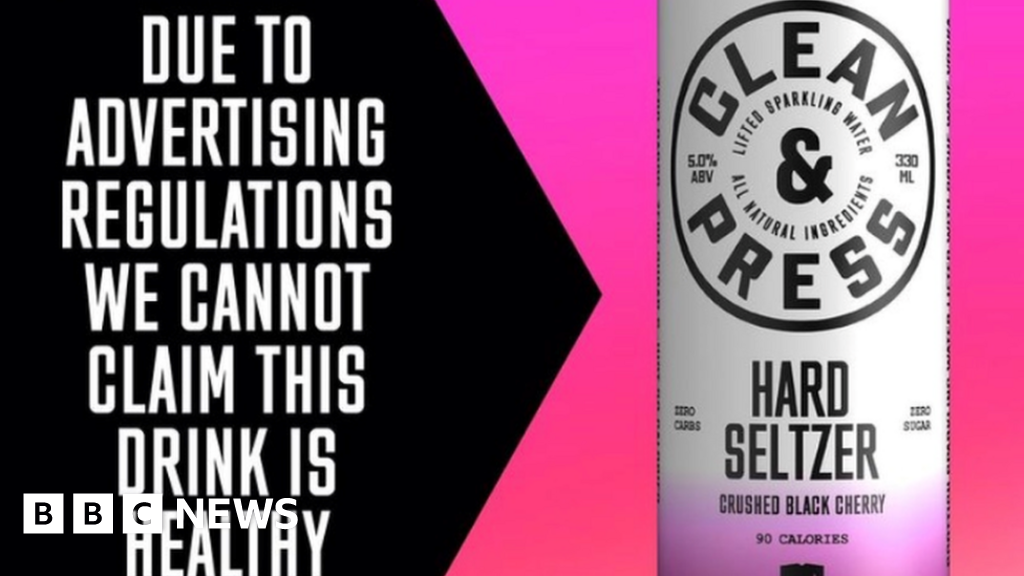Brewdog (c) Brewdog (c) Brewdog (c) Brewdog The Advertising Standards Authority (ASA) has banned a controversial brewer’s ad for making false promises. “Due to advertising restrictions, we cannot say this drink is healthy,” it claimed in an Instagram post for its Clean & Press Hard Seltzer, but continued with a reference to a low-calorie promise. The ad was “tongue-in-cheek,” but Brewdog promised not to use it again. Last week, Brewdog was notified to the Advertising Standards Authority (ASA) for saying a competition prize was pure gold and valued £15,000. The Scottish company had given ten customers the opportunity to uncover a gold can hidden in a case of its beer. When it was discovered that the gold beer can award was merely gold plated, some recipients of the gold beer can prize disputed Brewdog’s claim regarding its value. Brewdog has won the £15,000 gold prize for the second year in a row. Brewdog’s CEO promises to learn from harsh criticism. Brewdog stated that the valuation was correct. In the meantime, the Advertising Standards Authority is investigating if the competition violated any of its guidelines. In January, the business released an advertisement for its Clean & Press seltzer. It read: “Clean & Press is not a health drink, despite the fact that it has just 90 calories per can, has no carbs or sugar, and contains a little amount of alcohol. If you’re looking for a healthy beverage, skip Clean & Press.” The ASA also questioned if the ad made nutrition claims that were not permissible for alcoholic beverages, and whether the phrase “a little amount of alcohol” meant that the drink was low in alcohol, despite the fact that the product had an ABV of 5%. The ASA stated that nutrition statements such as “just 90 calories per can” and “no carbs or sugar” were not permissible for alcoholic beverages, as was the suggestion that the product was advantageous to overall good health or health-related wellbeing. The Advertising Standards Authority (ASA) determined that consumers would interpret the claim “a little amount of alcohol” to suggest that the product was low in alcohol when it had an ABV of 5%, and that the commercial violated the Advertising Code on this issue as well. “We have acknowledged the ASA judgement and have removed the in question text,” a Brewdog spokeswoman stated. The ASA also banned two Instagram posts by rival Drty Drinks for making misleading nutrition claims for an alcoholic drink and encouraging excessive drinking, as well as website posts by High Water and Whisp Drinks for making misleading and non-permitted nutrition claims for alcoholic drinks, in separate rulings. copyright to the image Craig, Mark Brewdog was founded by James Watt and Martin Dickie in 2007. It has come under fire in recent weeks after ex-workers wrote a statement on Twitter alleging that a “substantial proportion” of former employees “suffered mental illness as a result of working at Brewdog.” It made several claims, including that Brewdog promoted a culture in which employees were scared to voice their concerns. The corporation has promised an independent assessment of the issues raised and apologized to employees for causing them “a great deal of sorrow.” The fast-growing Scottish brewer and pub company, which employs 2,000 people, has seen remarkable growth. However, it has sparked debate with its marketing and commercial actions. Advertising BrewDogCompaniesAlcoholAdvertising Standards Authority BrewDogCompaniesAlcoholAdvertising Standards Authority BrewDogCompanies/n
Read MoreBrewdog Instagram ad banned for misleading health claims
2021-07-06T23:33:43-04:00July 6th, 2021|





